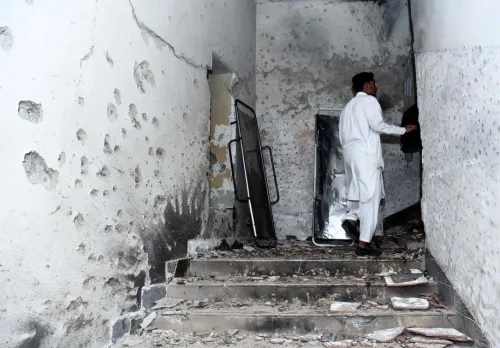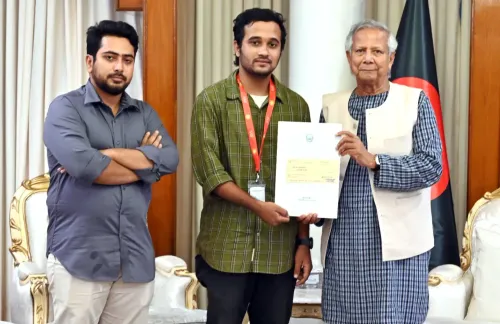What Sentences Did Jordan's State Security Court Impose on Convicts Involved in Weapons Manufacturing?

Synopsis
Key Takeaways
- The State Security Court in Jordan has imposed significant sentences for weapons-related offenses.
- Defendants were involved in producing short-range missiles and recruiting young men.
- Sentences range from three years to fifteen years of hard labor.
- The cases highlight ongoing security challenges in Jordan.
- Authorities are committed to addressing illegal activities and terrorism.
Amman, Oct 8 (NationPress) Jordan's State Security Court delivered sentences on Wednesday against multiple defendants found guilty in cases related to weapons manufacturing and the recruitment of young men for unlawful activities, as reported by the state-run Petra news agency.
In the most severe case, Abdullah Hisham and Muath Ghanem were sentenced to 15 years of hard labor and imposed fines for their role in producing short-range missiles intended for illegal use. Another defendant, Mohsen Ghanem, received a seven-and-a-half-year sentence along with a fine for his complicity, according to Xinhua news agency.
This trio set up two warehouses in Zarqa Governorate and Amman, allegedly obtaining training and funding from abroad to manufacture a short-range missile.
Moreover, Marwan Hawamdeh and Anas Abu Awad were sentenced to three years and four months of hard labor for compromising public order, safety, and security, breaching the Anti-Terrorism Law.
The pair traveled to neighboring countries, collaborating with foreign entities to recruit young men within the kingdom. They utilized secret communication channels and followed orders from abroad to find safe storage locations for materials.
In a separate case, Khader Abdulaziz, Ayman Ajawi, Mohammed Saleh, and Farouk Salman received three years and four months of hard labor for illegally training recruits through advanced courses and security instruction, preparing them for potential operational tasks.
Authorities reported that these cases were uncovered in April. The decisions rendered by the State Security Court are subject to appeal before the Court of Cassation, according to Petra.









